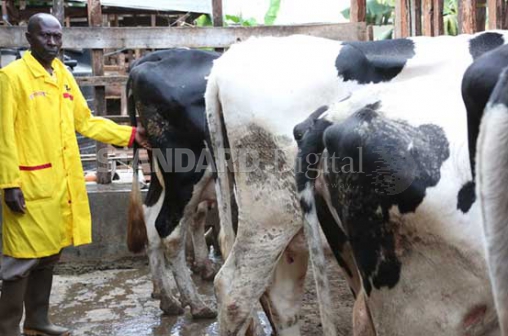×
The Standard e-Paper
Stay Informed, Even Offline

With only Sh10,000 and eager to venture into dairy farming, life looked rather bleak for Peter Njoroge. That was in 1992.
But the inadequate capital to establish a dairy enterprise did not deter the 57-year-old from Mukurweini, Nyeri County, who soldiered on with his plan. “A 1,000 mile journey starts with one step,” he says.